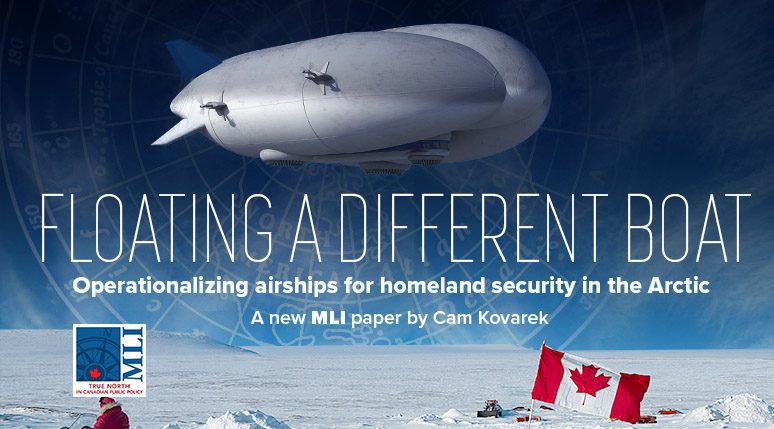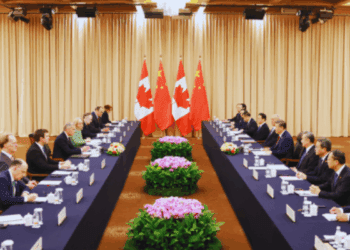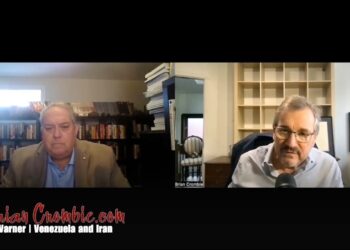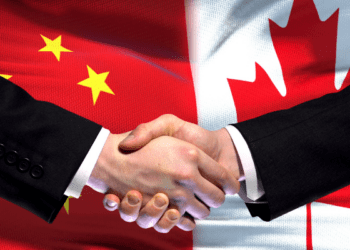By Cam Kovarek
November 27, 2023
Executive Summary
Although often used interchangeably, the terms blimp, dirigible, aerostat, and zeppelin are not synonymous; they refer to variations of airships that comprise the family of systems called “lighter than air” (LTA) platforms. The airships of today are more versatile than their historical and sometimes infamous counterparts: they can be piloted by a crew, operate unmanned by remote direction, or be left tethered and unattended. Their design is inherently safe. Hybrid airships can lift and transport weight at a much more efficient rate than airplanes and helicopters. Airships also don’t require long runways or large swaths of tarmac as they are capable of vertical take-off and can land on nearly any surface, including ice, snow, and water.
The United States Navy disbanded its airship corps after World War II, but airships could be ready for a comeback as opportunities are emerging for LTA platforms in the commercial and military sectors. Their inherent capabilities coupled with technological advances in the last half century make airships a viable solution for many situations. Further, the potential for them to be driven by alternative power sources may make airships not only a cheaper option, but a “greener” one as well.
One of the situations LTA platforms could address is North American Arctic security. In the last decade the Northwest Passage and Northern Sea Route have become increasingly attractive for maritime shipping and, accordingly, more contested.
All efforts to defend the Arctic face considerable challenges. Geography, climate, and weather collectively undermine the reliability of logistics, infrastructure, and communications in the Arctic. Warming temperatures seasonally destabilize some Arctic terrain, rendering overland travel increasingly hazardous. The inconsistent supply of food, medical supplies, and building materials further undermines the stability of the High North. The United States and Canada are also hindered by a dearth of icebreakers and deepwater port facilities in the Arctic, both of which limit access to the region for military and economic purposes.
The United States and Canada are probably not doing enough to improve the security of their northernmost reaches. If we want to improve our defences in the Arctic, we must employ versatile, capable airships to help – but this time, give them to the Coast Guard.
The United States Coast Guard is charged with defending maritime borders and operates as a law enforcement organization, a regulatory agency, part of the intelligence community, a first responder, and is responsible for maritime safety, security, and environmental stewardship in ports and waterways. It is also responsible for maritime drug and migrant interdiction, as well as various law enforcement functions.
Airships could be readily employed to support nearly every one of the Coast Guard missions, both within and beyond the Arctic. They can easily maneuver beyond the range of small-arms fire while preserving their ability to incapacitate a hostile vessel. Their ability to land on water in up to eight-foot seas means small boats can be deployed from them for law enforcement purposes. An airship’s physical stability – even in dangerous weather conditions – combined with its lower maneuver speed and ability to hover would minimize risk during migrant interdiction or search and rescue missions. In the event of environmental disasters such as oil spills, airships could serve as reconnaissance platforms to assess the scope of the incident.
Even more noteworthy, however, are the opportunities for expanded intelligence collection against adversaries – a function that is critical to improving surveillance in the Arctic. There are myriad possibilities when it comes to outfitting LTA platforms with payloads and sensors to detect, track, monitor, and report against adversary activity in the maritime domain.
Flying and maintaining airships will be far more affordable than operating conventional airframes due to greater fuel efficiency and lower maintenance requirements. And at least one of the airship models, the Z1, could be ready for defence missions as soon as 2027.
Should the United States military decide to operationalize airships, they may yet outmaneuver their strategic competitors with one slow, steady, and lighter-than-air solution.







